What is Petroleum Engineering?
According to Wikipedia, "Petroleum engineering is a field of engineering concerned with the activities related to the production
of hydrocarbons, which can be either crude oil or natural gas. Exploration and Production are deemed to fall within the upstream sector of the oil and gas industry.
Exploration, by earth scientists, and petroleum engineering are the oil and gas industry's two main subsurface disciplines, which focus on maximizing economic recovery of hydrocarbons from subsurface reservoirs.
Petroleum engineering requires a good knowledge of many other related disciplines, such as geophysics, petroleum geology, formation evaluation (well logging), drilling, economics, reservoir simulation, reservoir engineering, well engineering, artificial lift
systems, completions and oil and gas facilities engineering."
Energy is a key component to people's everyday lives; and a secure energy future requires a balance between environmental impact and affordable supply. Petroleum and geosystems engineers are able to address and solve important issues that will lead to energy security and thus are in high demand.
Economic and environmentally safe production of petroleum resources requires creative application of a wide spectrum of
knowledge, including, but not limited to:
- Mathematics
- Physics
- Geology
- Chemistry
Study Petroleum Engineering in Malaysia
Petroleum engineering overlaps with many of the engineering disciplines, such as: mechanical, chemical, and civil. For example, in Petronas' website, they hire the following people with these qualifications.
Discipline
|
General Degree / Qualification
|
| Reservoir Engineering | Degree in Petroleum Engineering / Chemical Engineering |
| Petrophysics | Degree in Petroleum Engineering / Geology (G&G) |
| Production Technology | Degree in Petroleum Engineering / Chemical Engineering / Mechanical Engineering |
| Drilling | Degree in Petroleum Engineering / Chemical Engineering / Mechanical Engineering / Electrical Engineering |
| Petroleum Economics | Degree in Petroleum Engineering / Chemical Engineering / Mechanical Engineering / Electrical Engineering |
Petroleum engineers increasingly use advanced computers, not only in analysis of exploration data and simulation of reservoir
behavior, but also in automation of oilfield production and drilling operations. Petroleum companies own many of the world’s supercomputers.
Petroleum engineers have a future full of challenges and opportunities. They must develop and apply new technology to recover hydrocarbons from oil shale, tar sands, and offshore oil and gas fields. They must also devise new techniques to recover oil left in the ground after application of conventional producing techniques.
Since many petroleum companies conduct worldwide operations, the petroleum engineer may have the opportunity for assignments all over the world.
Not many private universities offer the Petroleum Engineering course in Malaysia. Students interested in pursuing the degree at a top ranking university can consider Heriot-Watt University Malaysia. For an affordable degree in Petroleum Engineering that is accredited by the Board of Engineers Malaysia, students can choose to study at UCSI University.
The work of a Petroleum Engineer in Malaysia
Basically, Petroleum engineers design and develop methods for extracting oil and gas from deposits below the earth’s surface. Petroleum engineers also find new ways to extract oil and gas from older wells.
Petroleum engineers must have a bachelor’s degree in engineering, preferably in
petroleum engineering. Employers also value work experience, so cooperative engineering programs, in which students earn academic credit for structured job experience, are valuable as well.
A petroleum engineer is involved in nearly all stages of oil and gas field evaluation, development and production. The aim is to maximise hydrocarbon recovery at minimum cost while maintaining a strong emphasis on reducing environmental impact.
Petroleum engineers are divided into several groups:
- Petroleum geologists find hydrocarbons by analysing subsurface structures with geological and geophysical methods.
- Reservoir engineers work to optimise production of oil and gas via proper well placement, production levels and enhanced oil recovery techniques. They use computer simulations to assist in the identification of risks and to make forecasts on reservoir potential.
- Production engineers manage the interface between the reservoir and the well through such tasks as (but not limited to) perforations, sand control, artificial lift, downhole flow control and downhole monitoring equipment. They also select surface equipment that separates the produced fluids (oil, natural gas and water).
- Drilling engineers manage the technical aspects of drilling both production and injection wells. They work in multidisciplinary teams alongside other engineers, scientists, drilling teams and contractors.
Typical work activities of Petroleum Engineers in Malaysia
The actual tasks carried out will vary depending on the specific role but may include:
- liaising with geoscientists, production and reservoir engineers, and commercial managers to interpret well-logging results and predict production potential;
- compiling detailed development plans of reservoir performance using mathematical models to ensure maximum economic recovery;
- selecting optimal tubing size and suitable equipment within the well for different functions;
- designing the completion - the part of the well that communicates with the reservoir rock and fluids;
- designing systems that help the well to flow, for example using submersible pumps;
- managing problems of fluid behaviour and production chemistry;
- evaluating and recommending flow rate enhancement by using, for example, hydraulic fracturing (to force fluid into a well and fracture the rock) and acid treatment (to erode the rock and improve flow path);
- managing and controlling wells with branches at the bottom (horizontal and multilateral wells);
- using well and reservoir remote sensing technology and surveillance data to manage the value of the reservoir and decide on appropriate engineering interventions;
- understanding and managing how a set of wells interact;
- managing contractor relationships in relation to health, safety and environmental performance;
- supervising well-site operations personnel and managing staff at all levels, including the training and supervision of crew members, to ensure that everyone works as a team in order to meet deadlines to clients' satisfaction;
- liaising with separate departments to ensure correct progress with
- projects;
- taking responsibility for the maintenance of equipment;
- liaising with clients to keep them informed of progress.
Job Outlook for Petroleum Engineering Graduates in Malaysia
According to the USA Department of Labour, Employment of petroleum engineers is expected to grow 17 percent from 2010 to 2020, about as fast as the average for all occupations.
Oil prices will be a major determinant of employment growth, as higher prices lead to increasing complexity of oil companies’ operations and require more engineers for each drilling operation. In 2010, the median salary per year was US$114,080 per year.
According to Jobstreet, a petroleum engineer earns between RM 37,094 - RM 365,156 a year.
In Malaysia, The Gumusut-Kakap field, which recorded its first oil production in Nov 2012, is expected to reach a maximum of 25,000 barrels per day (bpd) after ramping up two wells.
Located in offshore Sabah as Malaysia's second deepwater development, the field's full
development comprises 19 subsea wells, a permanent semi-submersible floating production system with a potential to produce a maximum of 120,000 bpd.
In positioning Malaysia as the leading oil and gas (O&G) hub in the Asia-Pacific region by 2017, Malaysia Petroleum Resources Corp (MPRC) was formed to promote, catalyse and transform the sector.
Notable projects in the O&G (oil and gas) sector include the RM60bil Refinery and Petrochemical Integrated Development project in Pengerang, Johor, and the RM3.8bil Sabah Oil and Gas Terminal in Kimanis.
In the Oil, Gas and Energy National Key Economic Areas (NKEA), a consortium comprising Dialog Group, the State Government of Johor and Royal Vopak will invest RM4.08 billion to develop the Pengerang LNG Terminal Project - an LNG storage, loading and regasification terminal to import LNG for trading purposes and for domestic use.
The terminal will be the first Independent LNG Trading Terminal in Asia, allowing multiple LNG users to store and trade the product. This will spur the growth of the industry, and help establish Malaysia as Asia's LNG Trading hub.
All these are evidence that the job potential for Petroleum Engineers in Malaysia is good. In addition, Petroleum Engineers can work any where in the world.
The Oil and Gas Industry in Malaysia
The O&G industry is involved in downstream activities as well. Here, ‘downstream’ means processes taking place after oil has been transported from the reservoir, and into crude oil terminals. Investment opportunities include processing and refining of the crude, petrochemical plants, logistics and retail transactions.
Downstream has different players, and a more diverse range of interests. In oil refining, there are Petronas Penapisan (with plants in Terengganu and Melaka), Shell, ExxonMobil and Conoco.
Petronas Gas and MLNG are involved in gas processing and transmission. Gas distribution is handled by Gas Malaysia. The retail arm has many interests, including Petronas Dagangan, Shell, ExxonMobil and Conoco Phillips (under the Projet brand). Petrochemicals have the most diverse range of companies, including Optimal, BASF, BP, Amoco and Idemitsu.
Which is the Best University to study Petroleum Engineering in Malaysia?
Top Ranked UK Petroleum Engineering Degree at Heriot-Watt University Malaysia
Heriot-Watt University is a top ranked UK university offering the Petroleum Engineering BEng (Hons) at it new campus, the Heriot-Watt University Malaysia in Putrajaya. Students can now obtain the best of British education in Malaysia at a fraction of the cost. Furthermore, students may transfer to the UK for the final year or for the Masters with a 20% tuition fee rebate.
The Petroleum Engineering programme at Heriot-Watt University Malaysia will allow you to undertake a wide range of technical and managerial careers across the sector, e.g. reservoir analysis and simulation studies, drilling production patterns, estimation of petroleum reserves, design and implementation of oil field production, construction, commissioning, operation, management to specialist consultancy and advanced research and development.
The degree programme will help you to cultivate the ability to apply your skills to real, practical engineering problems and deepen your understanding of petroleum engineering principles through problem solving, projects and assignments. Students interested in registering at Heriot-Watt University Malaysia, please go to this link.
Why Study the Bachelor of Petroleum Engineering at Curtin University Sarawak?
Curtin University Sarawak is rated Tier 5 or Excellent in the SETARA 2013 ranking of universities in Malaysia by the Malaysian Qualifications Agency (MQA). Curtin University Sarawak is acknowledged to be one of the best universities in Malaysia for petroleum engineering.
- Lectures are accompanied by practical study in fluid and reservoir rock laboratories, geodynamic lab work and field trips to both service company offices and drilling sites.
- The petroleum engineering field offers on the highest salary rates.
- Graduates are immediately employable in the industry upon graduation. In fact, most of our students find employment before graduation.
- Petroleum engineers are amongst the best travelled professionals in the world.
- Excellent teaching staff, many with extensive industrial experience and strong links with national and international institutes.
Affordable Petroleum Engineering at UCSI University
Another top university in Malaysia, UCSI University offers the BEng (Hons) Petroleum Engineering which is accredited by MQA and the Board of Engineers Malaysia (BEM).
The Petroleum Engineering degree programme at UCSI University is designed to equip students with a solid foundation and
knowledge on oil and gas exploration, development, as well as on the processes starting from production to completion.
The Petroleum Engineering degree course at UCSI University encompasses a well-balanced curriculum that focuses on both upstream and downstream industries.
It covers a wide range of subjects that include mathematics, basic sciences, computing, introductory engineering, geology and petrophysics, drilling engineering, reservoir engineering, production engineering, economic and project management, as well as humanities and social sciences. Special features of the programme are:
- Commercial reservoir simulation software is used for teaching and learning
- Reservoir engineering includes elements of rocks and fluids properties, enhanced oil recovery and natural gas engineering
- Oil and gas production operation includes well completion, diagnosis and treatment
- Field trips to the oil and gas industry, geological study
- Laboratories to study drilling, rock and fluids properties
- Field development project
- Final year research and development project
Students interested in registering at UCSI University, please go to this link.
EduSpiral Consultant Services- Your Personal Online Education Advisor
Established since 2009, EduSpiral Consultant Services helps provide information and counselling on courses and universities in Malaysia. EduSpiral Consultant Services also represents Northampton University, UK, MDIS Singapore and Hong Kong Polytechnic University.
EduSpiral Consultant Services represents the best colleges and universities in Malaysia offering a wide range of choices for students to choose from. These colleges and universities offer value for money in the quality of education and excellent facilities that you get.
These universities and colleges are chosen by EduSpiral because they represent the best in their fields in Malaysia and affordable. EduSpiral provides in-depth information and counseling on their courses so that students are able to make the right choice.
If you are still not sure what to study, please contact us and we will send you a free EduSpiral Career Assessment Form.
Please contact us for more details.
- Whatsapp: +601111408838
- Wechat/Line: EduSpiral88
- Instagram: www.instagram.com/eduspiral
- Foursquare: www.foursquare.com/eduspiral
- Youtube: www.youtube.com/eduspiral
- Follow EduSpiral: www.twitter.com/eduspiral
- Be my friend: www.facebook.com/eduspiral1
- Like EduSpiral: www.facebook.com/eduspiralcs
- Message me: info@eduspiral.com
- Website: www.eduspiral.com
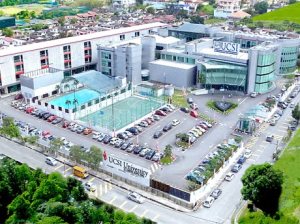
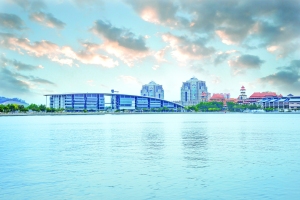
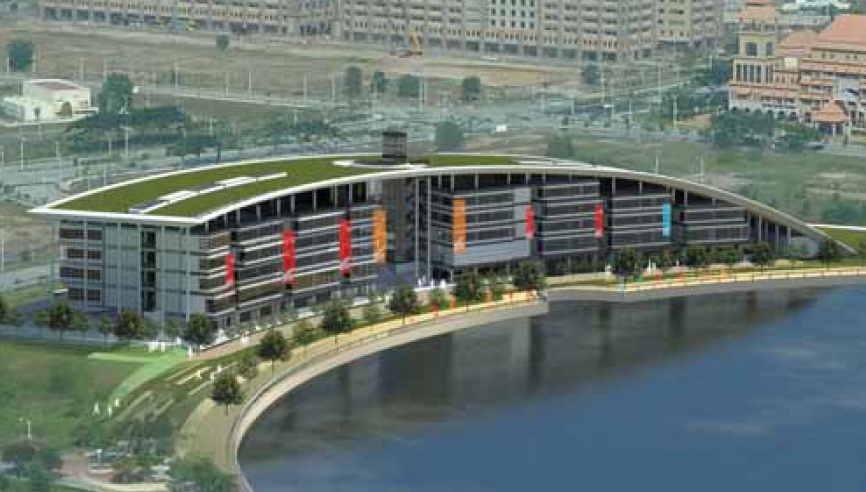
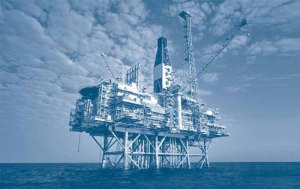


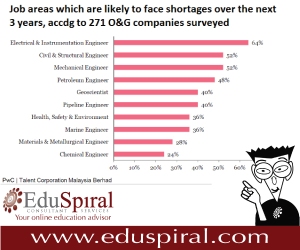
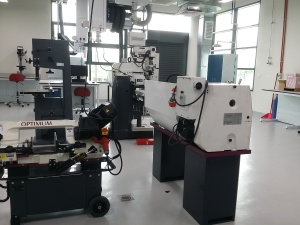

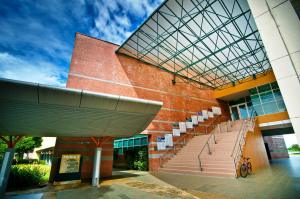
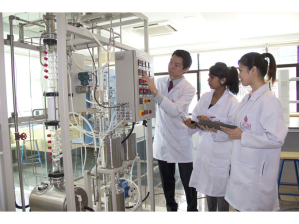
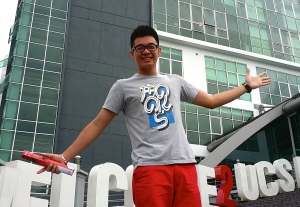
No comments:
Post a Comment
Please leave your comments and questions